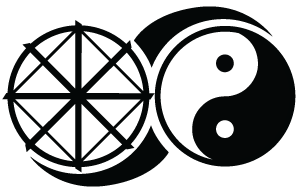Whats it mean to have a black belt?
First historically black belts and belt rankings are a recent invention as far as martial arts are concerned. The inventor is thought to be Kano Jigoro the founder of judo and the first to use a belt system in the 1880s. (many other styles didn't adopt belts till 1920s-1950s for Japan and Korea) originally their was only a black and a white belt (obi/sash at that time) colored belts were added in the 1930s, belts makes sense in a style like judo that is a competitive sport, because a belt allows you to easily match up people with similar rank in inter school competitions. Also the number of students at some of these schools are huge, at the kodokan (judo) they have thousands of students that come their to train. So a visual reference like a colored belt would work well so students and teachers can tell who is who. But traditionally martial arts was learned to help you defend yourself or to better your health often learned from a family or village system. In the same way the son of a blacksmith would learn his trade from his father he wouldn't receive any sort of ranking he would just train till he was proficient which would often take many years.
Now in present times what does it mean if someone says they have a black belt? Unfortunately nothing if you don't know the school it came from, because their is no accepted standard for what being a black belt entails. Their are some schools where it might take ten or more years to achieve a black belt with rigorous testing. But there are other teachers even well known ones that if you pay them a set fee (and maybe take a seminar or two) they will make you a black belt, you can also get them from some schools by doing online courses and of course people can lie and say they're a black belt when they aren't (it's easy to download templates to print out black belt certificates and any martial arts store sells belts). The average time for most schools is about two to four years (though I've heard as little as 4 monthes from legit schools if you go every day). Belts are also used both as a motivator and as an extra way to make money for many schools by charging for each test and charging at higher rates the further you advance. Another thing some schools do is have students sign a black belt contract that locks them into paying tuition for a set number of years, some of these schools will pass anyone that shows up and pays their tuition. Also a black belt isn't an end, most schools that do use belts have ten degrees you can advance after getting your black belt, with the student not considered a teacher till reaching second or third degree black belt in many of them, (again no standardization) and the tenth degree is often reserved for the founder or highest ranked member of the style. Which is why a tenth degree black belt can mean less then a first degree (any of you reading this can create your own style and give yourself a tenth degree black belt as founder of the style).
Particularly when you go outside of Japanese and Korean styles (the ones that use belts the most) you'll see most martial artists don't use belts at all or use completely different colors if they do. Styles that don't use belts can include (though some of these are adding them also) sport styles like MMA, boxing, kickboxing, combative systems like those used by soldiers, and police, styles practiced more for health like Tai Chi, styles that are trying to train in a traditional manner (remember any kung fu style such as shaolin, wing chun, bagua, or styles such as kali, penjak silat etc. don't traditionally use belts, though many in the U.S.A. and Western Europe are adding them in an attempt to compete with schools that do use them).
Having said all that there is nothing wrong with using belts (I've considered adding them for kids classes myself) they have good and bad points. On the good side it can help in setting goals and motivating students, especially younger ones(my son's school even uses the black belt ranking system in their music class). On the other hand traditionally many masters would teach each student differently depending on their strengths and needs, but a belt system creates a standardized system of curriculum which just like in public schools this can bring up the quality of the worst teachers because it tells them what to teach but it can stifle creativity in both students and teachers of the best. Another problem with belts is it often causes the student and teacher to focus on moving on to the next level as fast as possible because the student wants that black belt but the most important thing in martial arts (and most things) isn't learning more advanced material but really perfecting the fundamentals (which even instructors should continue to work on). A common question people ask you when your a martial artist is are you a black belt? Unless you know the requirments of the system someones trained in, a better question would be how long have you been training? because that question would not be style specific. If someone does say they're a black belt again this on average would mean they've been studying about three years (for first degree) which for most people would still be a beginner or at most an intermediate level martial artist if they practiced really hard, unless the teacher or student (or better yet both) is really exceptional then they might be at an advanced level.
